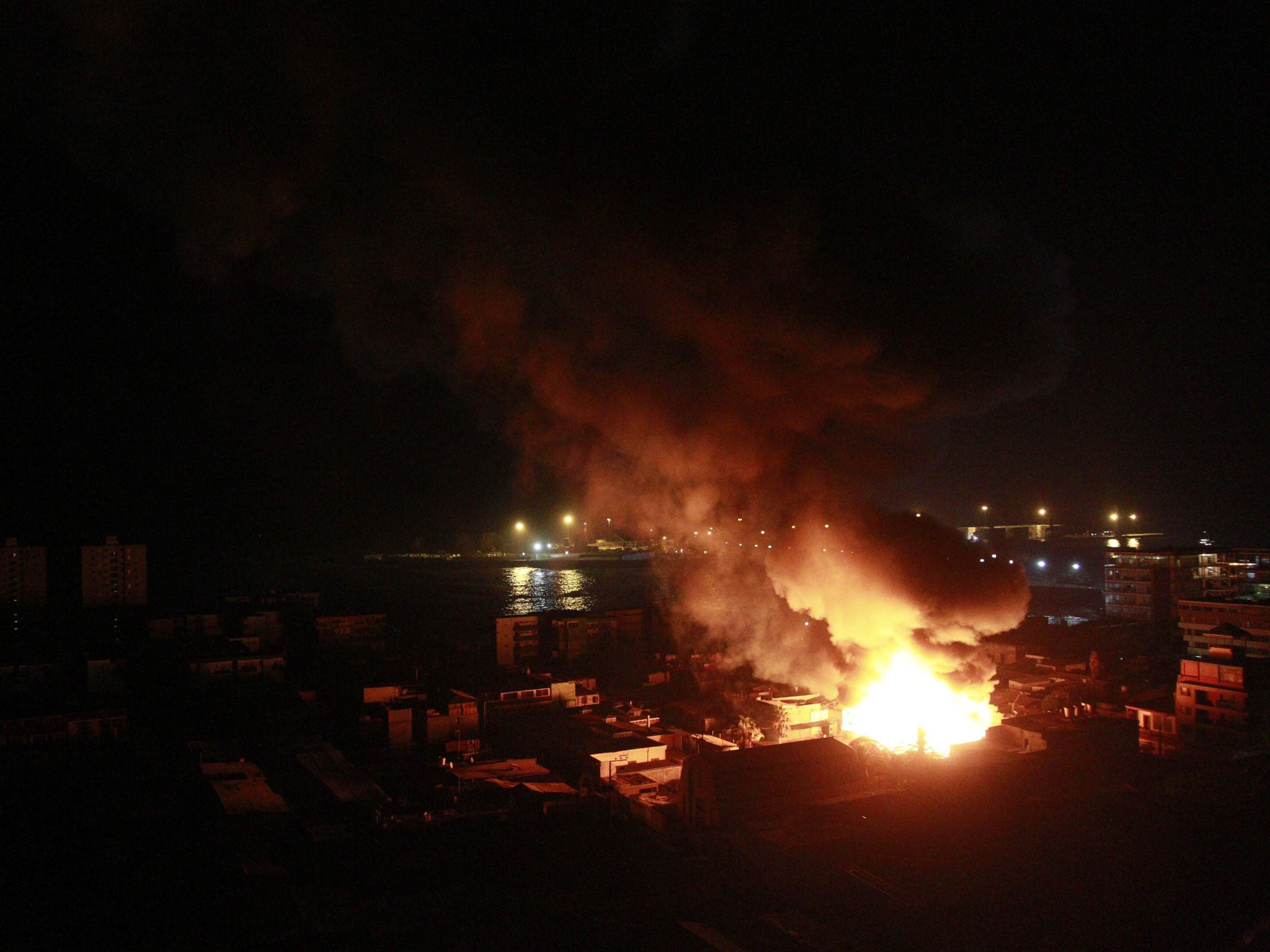Chile earthquake: Tsunami warning triggered, thousands evacuated and six killed as area declared a disaster zone
In the city of Iquique, around 300 inmates escaped from a women's prison

Your support helps us to tell the story
From reproductive rights to climate change to Big Tech, The Independent is on the ground when the story is developing. Whether it's investigating the financials of Elon Musk's pro-Trump PAC or producing our latest documentary, 'The A Word', which shines a light on the American women fighting for reproductive rights, we know how important it is to parse out the facts from the messaging.
At such a critical moment in US history, we need reporters on the ground. Your donation allows us to keep sending journalists to speak to both sides of the story.
The Independent is trusted by Americans across the entire political spectrum. And unlike many other quality news outlets, we choose not to lock Americans out of our reporting and analysis with paywalls. We believe quality journalism should be available to everyone, paid for by those who can afford it.
Your support makes all the difference.A powerful 8.2-magnitude earthquake has struck off the coast of Chile claiming six lives, triggering small landslides and generating a tsunami.
Three northern regions of the country have been declared disaster areas after the quake struck at 20:46 local time (23:46 GMT).
The epicentre was around 86km (52 miles) north-west of the mining area of Iquique, the US Geological Survey said.
The Chilean navy has reported that some areas in the north of the country were struck by large waves around 45 minutes after the quake hit.
There have been reports of waves measuring up to seven feet prompting a mass evacuation of coastal areas throughout the country. Chilean television images showed massive traffic jams as people attempted to flee affected areas.
Interior minister Rodrigo Penailillo announced the deaths and said they included people who were crushed by collapsing walls or were killed by heart attacks including Easter Island and the archipelago of Juan Fernández.
The US Geological Survey said the quake was shallow at 12.5 miles (20.1 km) below the seabed and struck about 100 km northwest of the mining port of Iquique near the Peruvian border.
The shaking caused landslides that blocked roads, knocked out power for thousands, damaged an airport and provoked fires that destroyed several businesses.
In the city of Iquique, around 300 inmates escaped from a women's prison.
The extent of the quake damage has not yet been fully assessed, Chilean president Michelle Bachelet said, but she sent a military plane with 100 anti-riot police to join 300 soldiers deployed to prevent looting and round up the escaped prisoners.
President Michelle Bachelet said the country had "faced the emergency well" and called on those in affected regions "to keep calm and follow instructions from the authorities". She is due to visit affected areas on Thursday.
At least twenty strong aftershocks followed in the few hours after the quake, including a 6.2 tremor and geophysicists have warned of potential further consequences relating to the quake.
Geophysicist Gerard Fryer said: "We regard the coast line of Chile as still dangerous, so we're maintaining the warning."
Ms Bachelet, who just returned to the presidency three weeks ago, spoke well after midnight, five hours after the quake struck.
It was not lost on many Chileans that the last time she presided over a major quake, days before the end of her 2006-10 term, her emergency preparedness office prematurely waved off a tsunami danger.
Most of the 500 dead from that magnitude-8.8 tremor survived the shaking, only to be caught in killer waves in a disaster that destroyed 220,000 homes and washed away large parts of many coastal communities.
That quake released so much energy, it actually shortened the Earth's day by a fraction of a second by changing the planet's rotation.
"The country has done a good job of confronting the emergency. I call on everyone to stay calm and follow the authorities' instructions," she tweeted after the latest quake.
The US Geological Survey initially reported the quake at 8.0 but later upgraded the magnitude of the quake that struck 61 miles north west of Iquique. More than 20 significant aftershocks followed, including a 6.2 tremor. More aftershocks and even a larger quake could not be ruled out, said seismologist Mario Pardo at the University of Chile.
The quake was so strong that the shaking experienced in Bolivia's capital about 290 miles away was the equivalent of a 4.5-magnitude tremor, authorities there said.
Additional reporting by Associated Press
Join our commenting forum
Join thought-provoking conversations, follow other Independent readers and see their replies
Comments